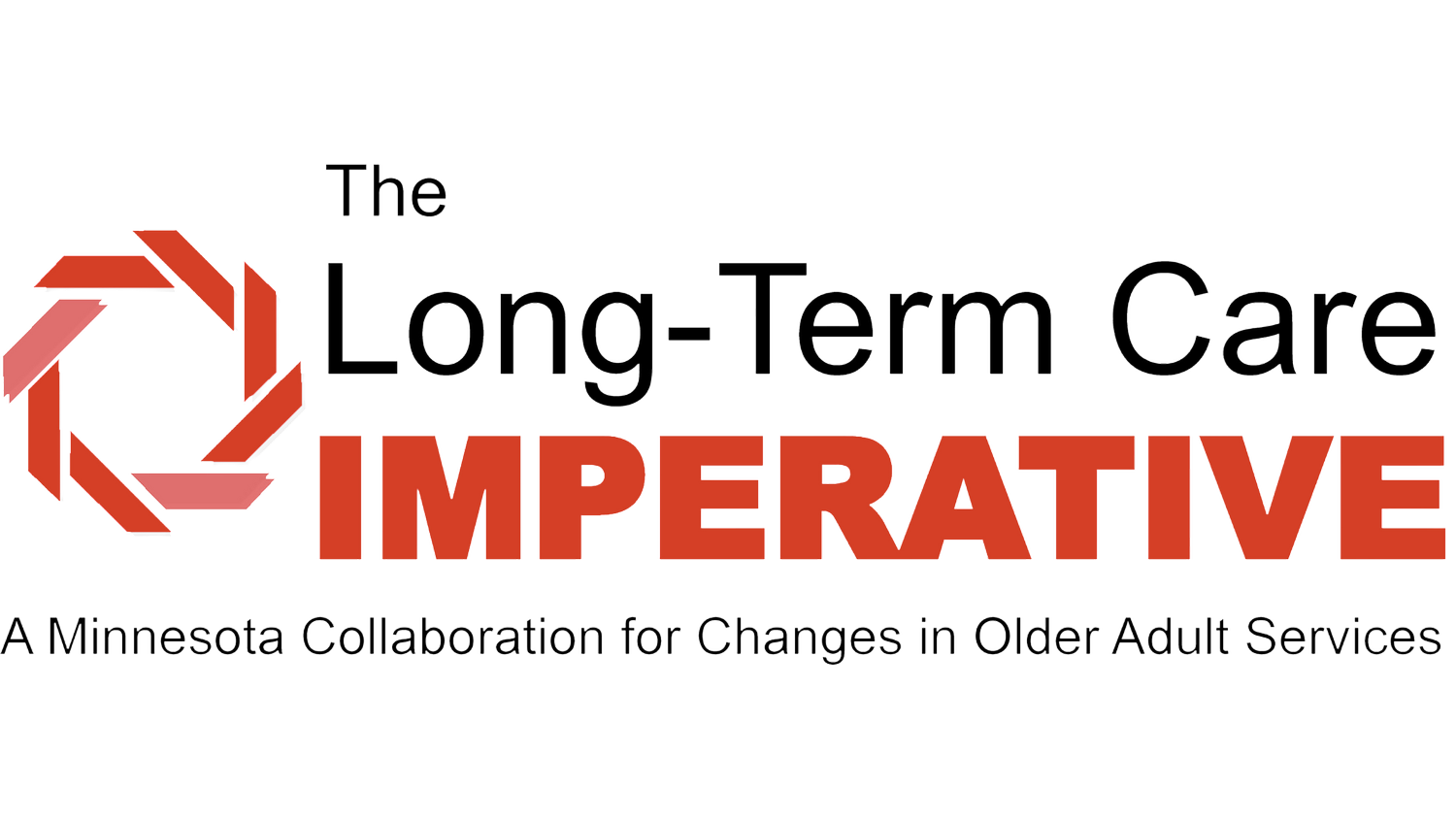
Senior care is a state responsibility – and a Minnesota value.
Two organizations. One mission.
The Long-Term Care Imperative (LTCI) is a partnership of Minnesota's two senior care provider associations – Care Providers of Minnesota and LeadingAge Minnesota.
LTCI members employ 80,000 professional caregivers in Minnesota, meeting the needs of seniors in all the places seniors call home – including short-term care, assisted living, memory care and skilled nursing homes.
Caring for our older loved ones is more than a responsibility – it’s a Minnesota value.
The Reality We Face
Minnesota is not prepared to accommodate the increased demand for senior care services that is resulting from our skyrocketing senior population. Without significant investment in Minnesota’s long-term care workforce and infrastructure, care will become less accessible and affordable for current and future seniors in need of care.
Minnesota seniors and their families are waiting for the care they need because there aren’t enough caregivers.
The staffing shortage in senior care is a crisis, affecting seniors and families in every corner of the state. Nearly 17,000 caregiver positions are vacant. Every week, nursing homes and assisted living communities throughout the state are forced to tell seniors and their families that there just isn’t enough room for them because there isn’t enough staff available. The choices for seniors are unacceptable — find care hours away, stay in the hospital longer than needed, or face declining health due to lack of services and care.
In the next five years, Minnesota will have 50,000 more residents who are age 80 or older than we have today. If we can’t take care of today’s seniors, what about tomorrow’s seniors?
Senior caregivers aren’t making the wages needed to support their families.
We need to pay our dedicated caregivers more than $17 per hour. They deserve it. But long-term care providers simply can’t raise rates to increase wages for caregivers. The Minnesota Legislature sets the Medicaid rates, which ultimately set the rates that nursing homes can charge every resident.
Governor Walz and legislative leaders must address this crisis and provide access to care for all seniors.
The caregiver crisis will continue to worsen unless legislators take action. Without state action, more seniors will lose access to the care they need.
The Solution to the Caregiving Crisis
Fund permanent wage increases for professional caregivers.
The caregiver crisis in long-term care is not a mystery. It’s driven by low wages for extremely demanding work. Higher wages for caregivers will result in more available staff to support seniors.
Eliminate the delay in reimbursement for nursing homes.
The state can’t ask long-term care providers to operate at a financial loss, and then expect that won’t affect access to care. Currently, nursing homes must wait 15 to 27 months (as much as 2 years) before receiving reimbursement from the state of Minnesota for the actual cost of services they provide to residents.
Lawmakers must modify our state’s Medicaid reimbursement system to help providers increase pay for caregivers.
Fully fund Medicaid waivers.
Fully funding the state’s Medicaid waivers that are intended to cover the costs of caring for seniors will help senior care providers meet the real costs of providing care and establish stronger wages for caregivers.
Implement initiatives to promote caregiver training and quality.
Minnesota can take several steps to ensure it has the best caregiving workforce in the nation, such as:
Investments in hiring incentives to generate interest in areas hit hardest by worker shortages
Promote opportunities for students to gain academic credit for working in the aging services sector
Expand access to education and testing for the next generation of nurses and nurse aides
Promote programs to broaden availability of trained medication aide training programs
Reduce barriers that slow or prevent hires from starting work







